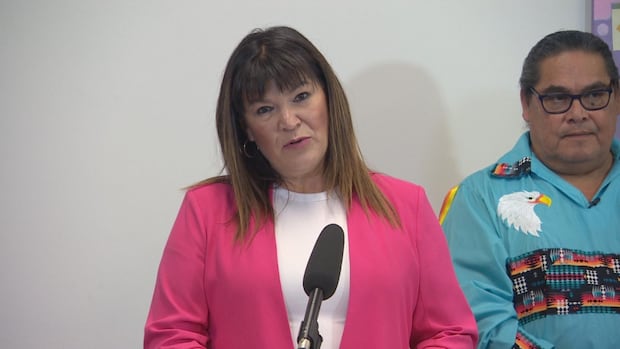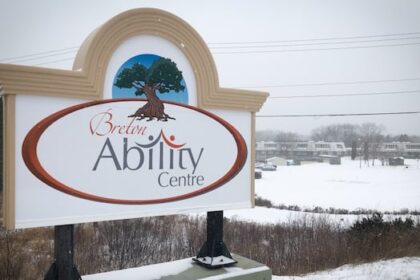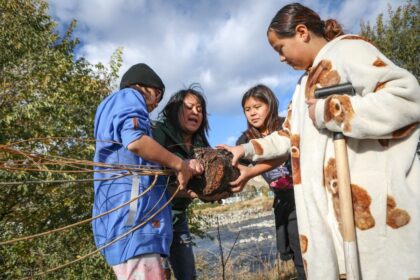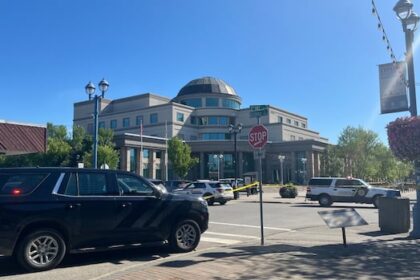Manitoba·NewA pair of Indigenous-led organizations are receiving funding from the Manitoba government to open about 400 new addictions treatment spaces later this year — part of push from the province to support First Nations with culturally appropriate resources to deal with substance abuse.Withdrawal management programming to roll in Interlake as RAAM clinic expands virtual services in the northCBC News · Posted: Sep 29, 2025 7:00 PM EDT | Last Updated: 29 minutes agoAddictions Minister Bernadette Smith told reporters at a news conference in Winnipeg that the province is investing $1.9 million to open about 400 new addictions treatment spaces at two Indigenous-led organizations later this year. (CBC)A pair of Indigenous-led organizations are receiving funding from the Manitoba government to open about 400 new addictions treatment spaces later this year — part of push from the province to support First Nations with culturally appropriate resources to deal with substance abuse.”For individuals, they offer culturally grounded care that affirms identity and promotes recovery. For families, they help restore relationships and break cycles of trauma, and for communities they strengthen resilience,” Addictions Minister Bernadette Smith told reporters at a news conference on Monday. Interlake Reserve Tribal Council is receiving $1.5 million from the province to implement traditional Indigenous programming that addresses withdrawal management services in five Manitoba’s Interlake region First Nations.Manitoba is also investing around $428,000 to expand virtual services at the Aboriginal Health and Wellness Centre’s rapid access to addictions medicine clinic, or RAAM, in rural and northern areas.”It is a step forward to restoring autonomy and dignity where relatives can see themselves in the faces and the stories of their helpers,” Smith said.Homelessness and addiction has grown over the last decade disproportionately impacting First Nations — heightening the importance of investing in programming that address substance abuse that’s culturally responsive and based on Indigenous community knowledge, Smith says.”These services are more than treatment,” Smith said. “They are pathways to healing, identity and community strength. They help reconnect individuals with culture, language and land — vital components of recovery.” 800 treatment spaces opened over last 5 monthsAround 800 day and evening treatment spaces at five other Indigenous-led organizations have opened over the last five months in Manitoba with $2.4 million in funding according to the province. Funding has gone to the creation of an outpatient program with traditional medicine at Misipawistik Cree Nation Health Authority and the expansion of a program for individuals with fetal alcohol spectrum disorder.Ndinawemaaganag Endaawaad Inc., a community organization on Winnipeg’s Flora Avenue, was also among the recipients of funding that was used to create support meetings for youth that have run daily since March. While addiction is the issue at hand, Lyonel Houston, elder at Ndinawemaaganag, said it can’t be addressed until the original problem that leads to substance consumption is worked through. Lyonel Houston, elder at Ndinawemaaganag, says the community organization in Winnipeg has received funding from the province to create support meetings for youth that have run daily since March. (CBC)Group or one-on-one conversations have been offered at the community organization to help through holistic healing — addressing the mental, physical, spiritual and emotional facets of a person. “What we’re doing here is discovery. We are going back to our culture, learning about who we are, where we come from, but most importantly, sharing what happened and helping them get beyond that so that they understand we don’t live there anymore,” Houston said. “We’re discovering our identity. We’re discovering those teachings that are our ancestors and our elders that left along the path for us to carry on.” PC addictions critic Jeff Bereza said it was about time for the province to make these treatment spaces available, with the province spending millions to open a supervised drug injection site rather than using the funding to provide the funding for the new wraparound supports.
Thursday, 5 Mar 2026
Canada – The Illusion
Search
Have an existing account?
Sign In
© 2022 Foxiz News Network. Ruby Design Company. All Rights Reserved.
You May also Like
- More News:
- history
- Standing Bear Network
- John Gonzalez
- ᐊᔭᐦᑊ ayahp — It happened
- Creation
- Beneath the Water
- Olympic gold medal
- Jim Thorpe
- type O blood
- the bringer of life
- Raven
- Wás’agi
- NoiseCat
- 'Sugarcane'
- The rivers still sing
- ᑲᓂᐸᐏᐟ ᒪᐢᑿ
- ᐅᑳᐤ okâw — We remember
- ᐊᓂᓈᐯᐃᐧᐣ aninâpêwin — Truth
- This is what it means to be human.
- Nokoma











